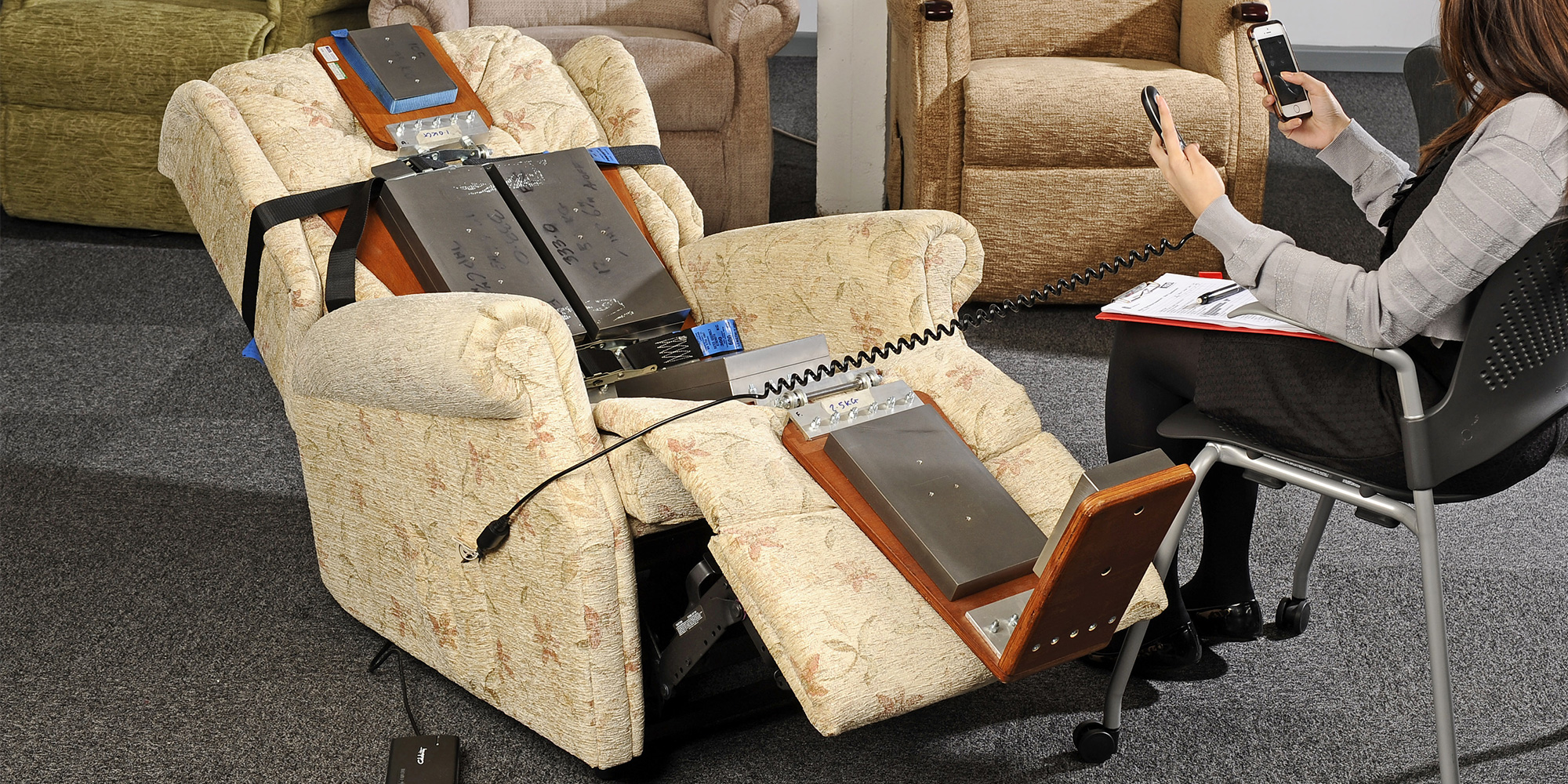JIS S 1103 Wooden Recliners Mechanical Strength Testing
The JIS S 1103 standard is a Japanese Industrial Standard that specifies the method for determining the mechanical strength of wooden recliners. This test ensures that furniture manufacturers adhere to stringent quality and safety requirements, thus maintaining the integrity of the product across various markets.
Testing per this standard involves subjecting the recliner to specific loading conditions designed to simulate real-world usage scenarios. The primary goal is to evaluate the structural stability of the wooden components under load, which helps in identifying potential weaknesses that could lead to product failure or injury risk.
The process begins with specimen preparation where individual parts of the recliner are isolated for testing based on their function and material composition. Once prepared, these specimens undergo loading tests using specialized equipment capable of applying controlled forces. The instrumentation used captures critical data points such as deflection rates, load distribution patterns, and overall structural integrity.
After completing all relevant tests according to JIS S 1103, comprehensive reports are generated detailing the results obtained from each test condition applied. These documents serve not only as evidence of compliance but also provide valuable insights into areas requiring improvement within production processes or design elements.
Adherence to this standard is crucial for businesses aiming to penetrate Japanese markets while ensuring consistent product quality worldwide. By conducting thorough mechanical strength tests on wooden recliners, manufacturers can enhance customer satisfaction and build trust in their brand reputation.
- International Acceptance: Compliance with JIS S 1103 assures global market access by meeting stringent safety standards recognized internationally.
- Quality Assurance: Rigorous testing ensures products meet rigorous quality benchmarks, enhancing overall reliability and durability.
- Consumer Confidence: Meeting these requirements fosters consumer confidence in purchasing safe, high-quality furniture.
In summary, JIS S 1103 mechanical strength testing plays a pivotal role in guaranteeing the safety and performance of wooden recliners. By adhering to this standard, manufacturers can demonstrate their commitment to excellence, thereby gaining competitive advantages and fostering long-term customer loyalty.
Frequently Asked Questions
Benefits
Conducting JIS S 1103 mechanical strength tests offers numerous advantages to manufacturers. Firstly, it guarantees adherence to strict quality standards, ensuring products are robust and durable. Secondly, compliance with this standard fosters consumer confidence in purchasing safe, high-quality furniture. Additionally, meeting these requirements can open doors to new markets, particularly in Japan, where stringent safety regulations apply.
Furthermore, the rigorous testing process helps identify potential weaknesses early on, allowing manufacturers to implement necessary improvements before product release. This proactive approach not only enhances product reliability but also minimizes recall costs and associated reputational damage. Moreover, consistent performance across multiple markets strengthens brand reputation and fosters long-term customer loyalty.
Overall, JIS S 1103 mechanical strength testing is essential for maintaining high standards of quality and safety in the production of wooden recliners. By investing in this process, manufacturers demonstrate their commitment to excellence, ultimately benefiting from enhanced market access and increased consumer trust.
Eurolab Advantages
At Eurolab, we pride ourselves on offering comprehensive testing solutions that cater specifically to the needs of our clients in various sectors. Our expertise lies in providing accurate, reliable results through state-of-the-art facilities and experienced personnel.
- Accurate Results: Equipped with advanced instrumentation, we ensure precise measurements during mechanical strength tests.
- Experienced Personnel: Our team comprises highly qualified professionals who possess extensive knowledge in furniture testing.
- State-of-the-Art Facilities: Our laboratory features modern equipment and infrastructure suitable for conducting thorough analyses.
- Comprehensive Reporting: Detailed reports are provided post-testing, offering valuable insights into product performance and areas requiring improvement.
We understand the importance of meeting international standards like JIS S 1103. At Eurolab, we ensure that every test conducted adheres to these stringent requirements, providing peace of mind for our clients.
International Acceptance and Recognition
- Australia: Compliance with JIS S 1103 is recognized in Australia, facilitating easier market entry for compliant products.
- New Zealand: Products meeting these standards are accepted in New Zealand, enhancing brand reputation and consumer confidence.
- United States: Although not mandatory, compliance can positively influence product perception in the U.S. market.
- European Union: Some European countries recognize JIS S 1103 standards, offering broader market access for compliant manufacturers.
The acceptance and recognition of JIS S 1103 extend beyond Japan, reflecting its importance in the global furniture industry. By adhering to these stringent requirements, manufacturers can tap into wider markets, ensuring their products meet international quality benchmarks.





